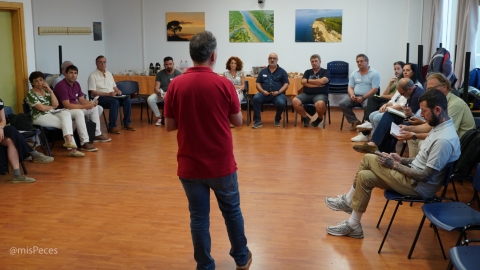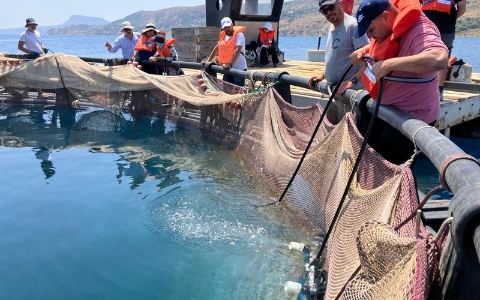
Playing slow-tempo guzheng music- a traditional Chinese string instrument-can significantly reduce stress and improve welfare in small ornamental fish, according to a new scientific study published in Aquaculture Reports.
The researchers concluded that “playback of slow guzheng offers a practical, non-invasive approach to reduce stress and improve welfare in ornamental fish housed in barren aquaria.” The findings are based on a controlled experiment assessing behavioural and physiological responses in zebrafish (Danio rerio) and guppies (Poecilia reticulata), two of the most popular species in ornamental fishkeeping.
The study compared the effects of four music styles-slow and fast piano, and slow and fast guzheng-against a silent control group. Over five days, fish were exposed to each musical condition for four hours daily. Researchers monitored behavioural patterns and measured whole-body cortisol levels, a key indicator of stress.
In zebrafish, slow guzheng music notably increased social and exploratory behaviours while reducing negative behaviours such as springting. It was also the only treatment that significantly lowered cortisol levels. Guppies, on the other hand, showed a broader positive response: all musical treatments led to reduce cortisol, but the slow guzheng group again performed best in balancing positive behaviour with low stress indicators.
Fast-tempo music, particularly piano, tended to elevate stress markers in zebrafish and triggered anxiety-like behaviours such as freezing and erratic movement.
A Sound-Based Welfare Strategy

This study is among the first to rigorously explore how both tempo and instrument type influence ornamental fish welfare. The authors note that auditory enrichment has practical advantages: it is affordable, water-quality neutral, and easy to apply, especially in minimalist environments where physical enrichment is not feasible.
While previous research has focused on classical Western music or ambient sound, this study highlights the potential of ethnic instrumental music as welfare tool and. according to the authors, support further exploration of “ethnic music as a form of enrichment.”
For both hobbyists and professionals, the study provides a scientific foundation for using music as a form of sensory enrichment. As fish welfare gains prominence in the ornamental sector, simple measures like music playback could help mitigate the stress caused by confined or unstimulating environments.



